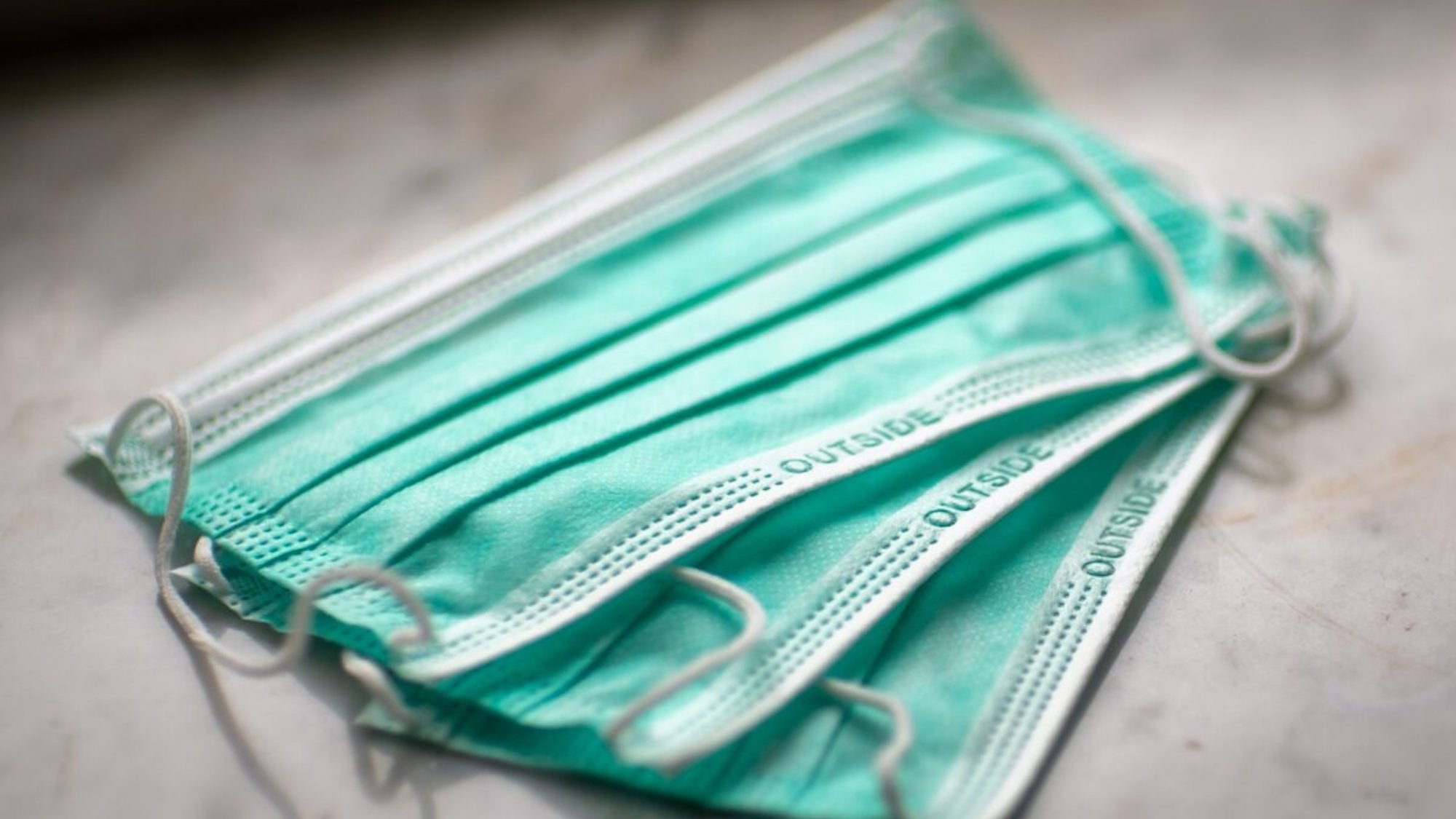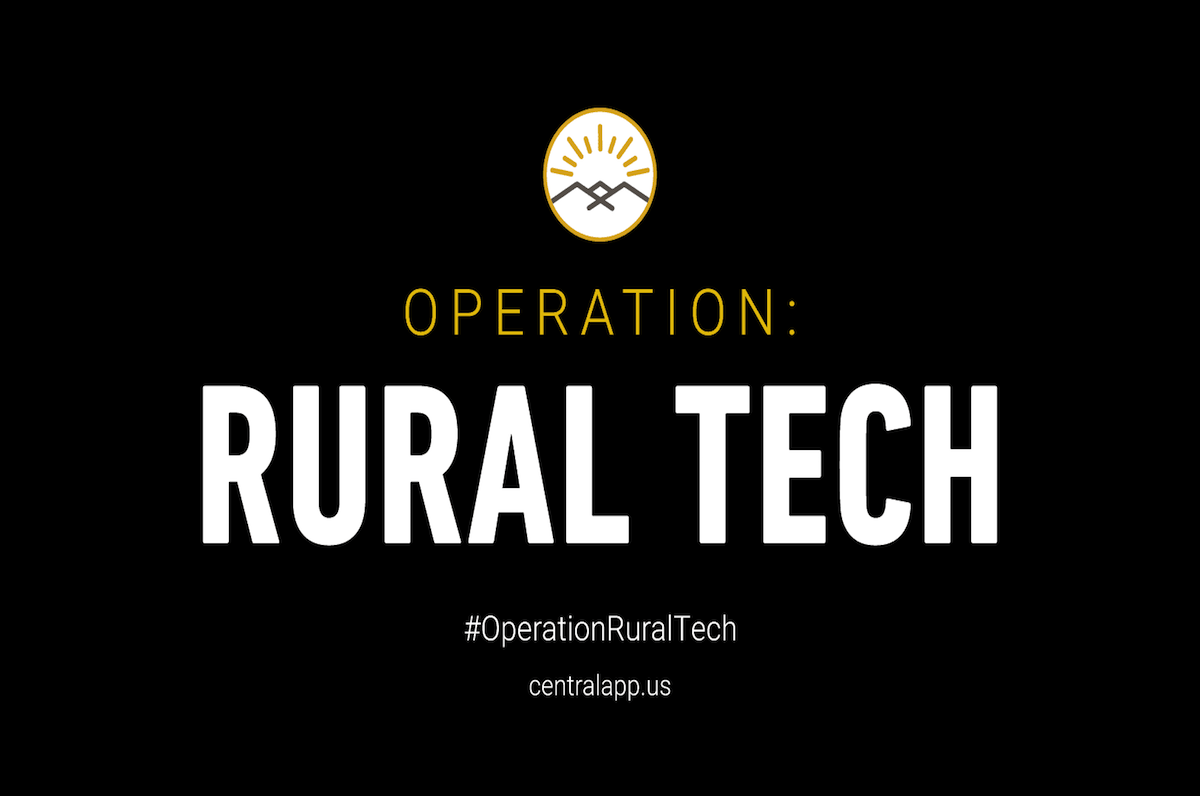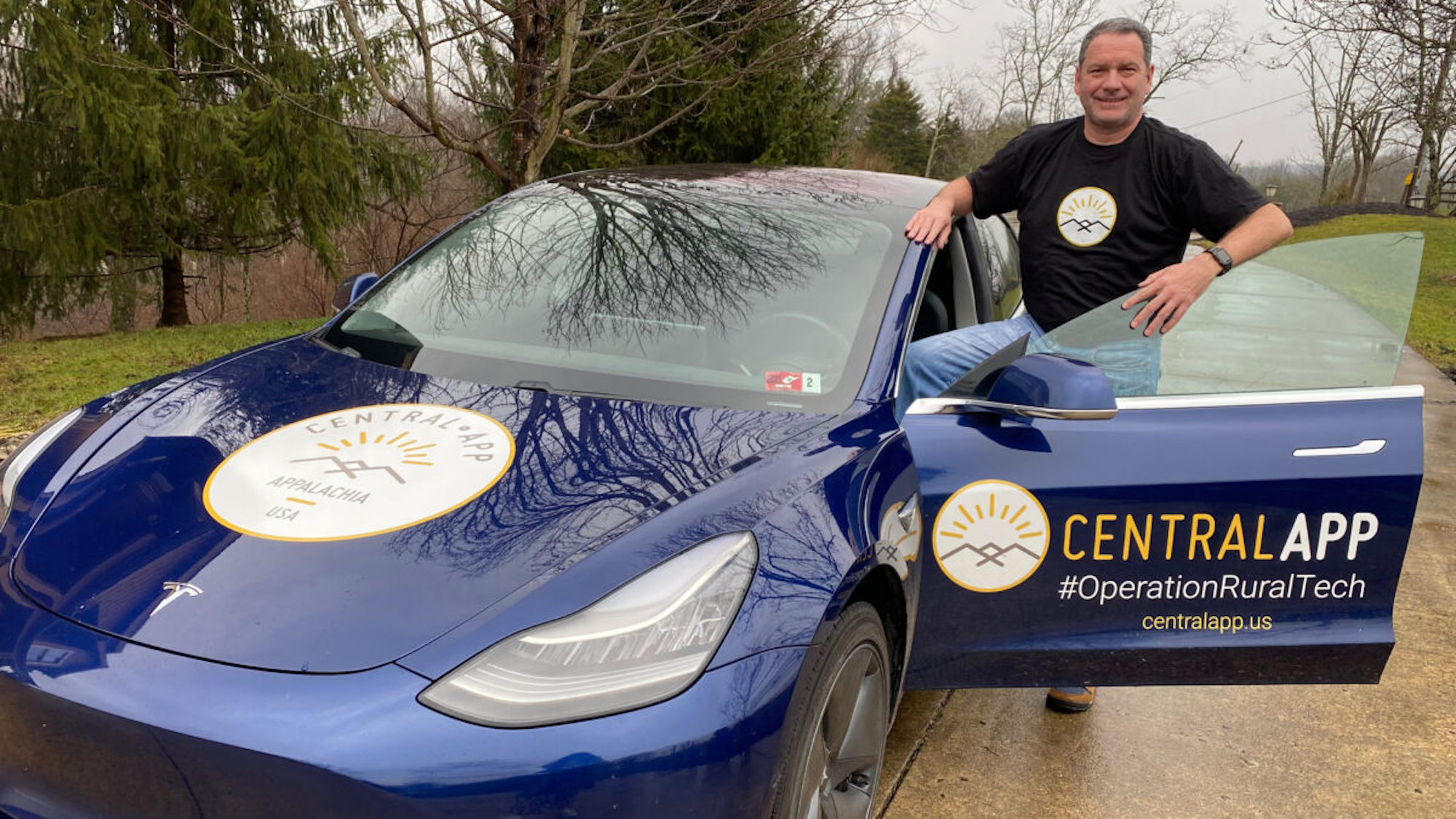A mask or a gun?

This piece, written by CentralApp CEO Todd Cope, originally ran in the Charleston Gazette-Mail.
What does it take to stay safe on the road these days? Well, that depends on who you ask.
Last month, I announced that I was heading out on a cross-country road trip. I’m the CEO of a West Virginia-based tech company called CentralApp, and I need to be in California later this month for work. To stay safe during the pandemic, I’m avoiding airports and skipping hotels, opting instead to camp in my Tesla. (Prior to this, I hadn’t been camping in over 20 years, and I got a “luggable loo” for Christmas. It’s been interesting so far.)
Rather than simply drive straight across the country, I decided to use the trip to amplify our company’s mission: to connect Appalachian workers with remote tech jobs. We’re calling it Operation Rural Tech. I’ve been following a meandering route, so I can meet with tech leaders (from a safe social distance) along the way.
One of the things that drew me to CentralApp was the company’s focus on bridging the chasm that exists in the tech economy. The technology sector’s massive expansion has created unprecedented opportunity and prosperity, for some.
But rural communities have largely been left out, which has only widened the gulf between urban and rural America. That disconnect became glaringly evident to me recently when, in preparation for my trip, I asked a simple question on Facebook: What should I pack to stay safe on the road?
The two most common answers were shockingly different — a mask and a gun.
Interestingly, the recommendations were closely correlated with my Facebook friends’ and followers’ geographic location. Rural people suggested the gun. Urban folks said bring extra masks.
Their responses illustrate a stark contrast in world views. And where you live clearly has a lot to do with what you believe.
I was born and raised in Appalachia, and my grandfather mined coal out of the West Virginia hills. I love the region and the state. I also have spent more than 25 years working in tech companies headquartered in large coastal cities, from San Jose to Philadelphia. So, to me, both suggestions are thoughtful and well-meaning responses.
But, for many Americans, one or the other of these answers doesn’t make much sense. And I can understand why. When I was splitting time between Philadelphia and my home in West Virginia, I noticed that I reacted to situations in completely different ways, depending on where I was.
In Philadelphia, if I heard a gunshot, I would duck or run. In West Virginia, I hear gunshots almost daily near my home and completely ignore them. In Philadelphia, if I heard a siren, I would ignore it. In West Virginia, I immediately check on my neighbors.
Most urban dwellers think of guns as a criminal weapon. Most rural folks consider it a tool for recreation, hunting for food, or self-defense.
A lot of my Philadelphia and San Francisco Bay Area friends don’t understand that last part. They rely on the police and don’t see a need for a weapon to defend yourself or your home. But, if I call 911 when at home in West Virginia, it will take the sheriff at least an hour to get here. In many areas, there’s no street-corner cop.
When it comes to masks, it’s no wonder urbanites are more fervent. Many of our cities’ hospitals have become war zones, with patients dying in waiting rooms and being treated in tents, trailers and even hospital gift shops. While the pandemic is raging in rural areas, too, the effects are less visible.
Social distancing is not so much a precaution as a way of life. On my morning run in West Virginia, I see many deer, but rarely see people. Here again, in many communities, you’re likely to spend an hour or so driving to even reach a hospital.
In short, urban and rural communities are different. One thing I think we’ve lost sight of in recent years is that that’s OK. The recent attack on the U.S. Capitol is yet another manifestation of an endemic “us vs. them” mentality.
Yes, there are some issues that require us to draw a line in the sand, with violence, racism and bigotry topping that list. But, most times, the world benefits when divergent perspectives and experiences converge — especially if we can find a way to bridge gaps and see things from another’s point of view.
Lately, outrageous and extreme assumptions (and behaviors) seem to have become the norm. I’m often amazed by some of the things people ask me about the “other” place where I spend my time.
I have, in all seriousness, been asked by a Californian how many people I know in West Virginia that are in the KKK. While West Virginians have asked me how many people in California I know that are part of antifa. The answer to both is zero.
If this month’s events have shown us anything, it’s that extremists exist everywhere. But, by maintaining this illusion of the “other,” we’re only breeding more fear and hatred. We need to get beyond the demonization of fellow Americans and stop assuming there is no common ground.
I’ve met amazing neighbors and friends everywhere I’ve lived — kind, considerate and multi-faceted individuals who don’t deserve the stereotypes assigned to them.
For America to overcome its divisiveness, we must develop empathy for one another and bridge the divide that has developed between urban and rural communities. I believe, if we can work together — literally work together — by connecting rural people to urban economies, we’re more likely to find common ground and shared understanding.
I hope Operation Rural Tech helps facilitate that. If nothing else, it got urban and rural folks talking — civilly (mostly) — on my Facebook feed.
Todd Cope, a native West Virginian, earned a bachelor’s degree in electrical engineering from Carnegie Mellon University and a master’s of business administration in finance and marketing from Santa Clara University. He has served in executive-level roles for technology companies on both U.S. coasts and in Malaysia.


